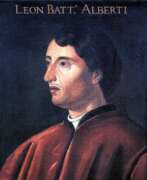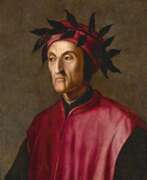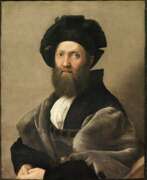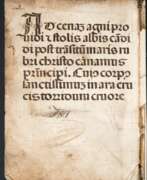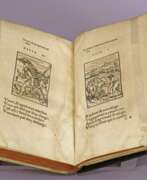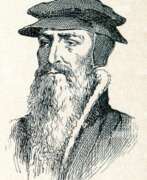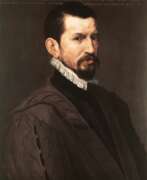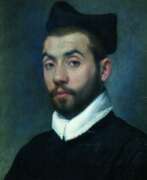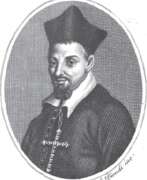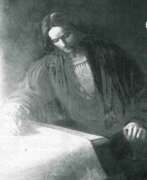Humanists Renaissance


Francesco Petrarca was an Italian poet, the founder of European humanism, and one of the greatest figures of the Italian Proto-Renaissance.
Petrarca studied at the University of Montpellier, then at the University of Bologna, in 1330 entered the service of Cardinal Giovanni Colonna as a chaplain. Then he made various pilgrimages, in 1353 settled in Milan at the court of Archbishop Giovanni Visconti, and carried out important diplomatic missions. Petrarca spent the last years of his life in the village of Arquà near Padua.
Since 1337 Petrarca began to write literary works: these were historical poems in Latin and lyric poems in Italian. In 1327 Francesco saw Laura for the first time, undivided love for which was the main source of his poetry. Laura was for him an object of adoration and pure platonic love. Despite the fact that they saw each other only a few times and were not really acquainted, Petrarca carried this feeling through his life.
Passionate about ancient culture, Petrarch deciphered and commented on the manuscripts of Cicero, Quintilian and others. He opposed medieval scholasticism interest in the earthly purpose of man, argued that the nobility of man depends not on the nobility of origin, but on his virtue. Petrarca highly valued the mind and creative abilities of man, and these humanistic ideas found vivid expression in his lyrics, revealing the inner world of man. Petrarca's work laid the foundation for the formation of Italian humanism. He also dreamed of the unification of Italy, the revival of the former greatness of Rome.
Francesco Petrarca had one of the richest libraries of his time, where ancient Roman writers, poets, historians, philosophers were represented. He was one of the brightest representatives of the culture of the Renaissance. Petrarca's works are characterized by perfection of form and musicality of verse, which played a significant role in the development of European poetry. Among his works are the poem "Africa" about the Second Punic War in Latin, allegorical pastoral eclogues "Bucolics" (1346/1357), a book of songs "My Italy", "Noble Spirit", sonnets, etc.


Luigi Pulci was an Italian poet and humanist writer and diplomat.
For many years Pulci lived under the patronage of the Medici family and was a member of their circle of poets and artists, and later, after Lorenzo the Magnificent came to power, entrusted him with various embassies and diplomatic missions. At the age of about 40, Pulci entered the service of the northern condottiere Roberto Sanseverino and remained with him until his death.
Pulci wrote many different works, but is known primarily as the author of one of the outstanding epics of the Renaissance, the Morgante (Morgante or Morgante Maggiore). This chivalric-romantic parody and comic epic was first published in Italian in 1481. Its plot is based on the adventures of the knight Orlando and his squire, the giant Morgante. Pulci's unpretentious narrative and sharp satire immediately made "Morgante" very popular, but also aroused the anger of influential enemies like the Dominican friar Girolamo Savonarola, who called to burn copies of the book on the "bonfires of vanity".
Pulci's work influenced the French satirical writer François Rabelais (1494-1553).
